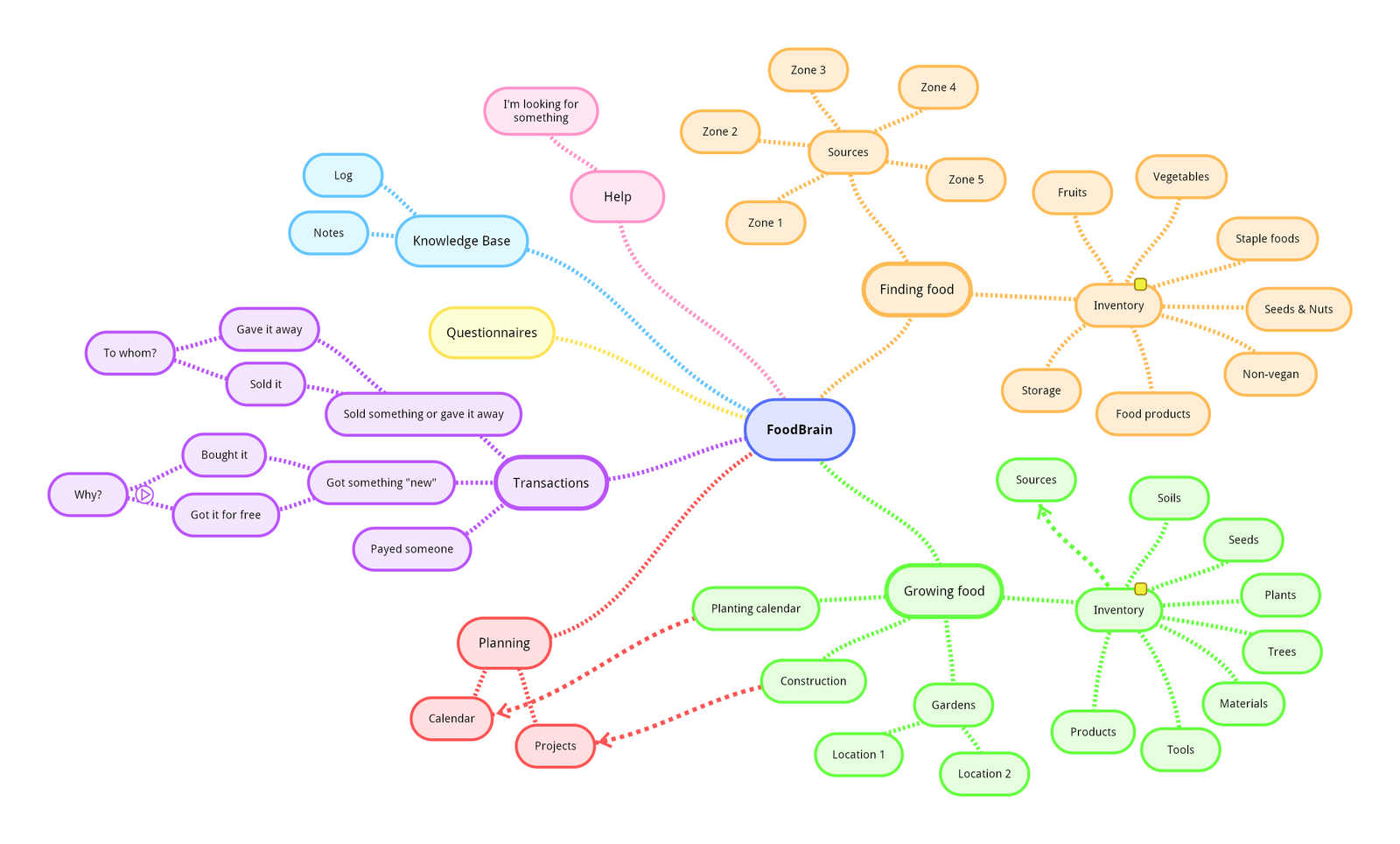FoodBrain
Mostly just an idea still.
For a while now, I've been playing with the idea of laying out the food map we all carry around in our heads. I don't know what that looks like exactly, but I imagine it to be a network of sources, habits and values that we use to hunt and gather food every day.
For many of us that map is not very complex: go to (super)market / restaurant / delivery app, choose what you want, pay up and forget about it. The fact that we have this level of choice, convenience and efficiency is almost miraculous. Ask your grandparents, they'll probably agree. But will it last?
More and more people recognize that the current industrial food system is not sustainable. Consuming huge amounts of (fossil) energy, heavily polluting, depleting top soil at an alarming rate, extremely vulnerable to climate disruption, and in many cases: not producing healthy food. The list goes on and on.
That's why alternatives are emerging everywhere. Localized, small scale food production that relies on regenerative farming methods seems to be the most common sense response. But that does make it more challenging sometimes to gather food, because it's more decentralized, seasonal and often very much in demand. If you're not fortunate enough to live in a place with a thriving organic food culture (meaning farmers markets, CSAs, local grocery stores, good restaurants, etc), then access to healthy food can become costly and time consuming.
The situation here (in Davao City, Philippines) is a little bit in between. My experience is that if you really want to eat healthy and consciously, you either have to grow it yourself, or establish a very diverse food network. Both take up a lot of time.
So that's where I see the FoodBrain come in. The primary objective is to find trustworthy food sources, as close to home as possible. If you're familiar with permaculture, you probably know about zones. In your garden, you divide the area into zones, depending on how frequently you need to visit them. Zone 1 is directly adjacent to your home. You may put your hen house there, so you don't need to walk all the way to zone 5 (the farthest) every morning to get some eggs for breakfast.
So why not apply this system to your food sources?
- Zone 1: Food you grow yourself
- Zone 2: Food grown in neighborhood (community) gardens
- Zone 3: Food from your area (farms, farmers markets, CSAs)
- Zone 4: Food from your region / country (local products in supermarket)
- Zone 5: Imported food (or origin unknown)
Next to zoning food based on where it comes from, maybe you can try to judge how responsible it was grown (or processed) and label it accordingly. The further its origins, the harder that might become. Existing labels in supermarkets don't always tell the whole story. Maybe the non-GMO, organic soy beans in your veggie burger are grown on top of cleared Amazon rainforest!
So by mapping this out and trying to find alternatives for less ideal choices, I hope to gradually localize my food supply. I don't know if and how this could be an app or platform someday, but I can imagine it would be nice to be able to share food connections with other people nearby. This way, we can develop a local food brain together.
That's still dreaming out loud for now. But maybe doing the zoning exercise for yourself can already give you some insights to start with?
